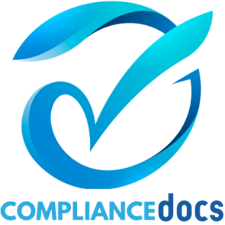ISO certification is a powerful tool for businesses in the UAE’s key industries, such as oil and gas, construction, healthcare, and technology. It not only demonstrates a commitment to international standards but also brings tangible advantages in an increasingly competitive market. Here’s how ISO certification benefits companies in these critical sectors:
1. Oil and Gas Sector
The UAE is a global leader in the oil and gas industry, where safety, efficiency, and environmental stewardship are paramount. ISO certification provides:
- Compliance with ADNOC and Government Standards: ISO 9001, ISO 14001, and ISO 45001 certifications help suppliers meet stringent requirements set by ADNOC and other regulatory bodies.
- Improved Safety: ISO 45001 ensures robust occupational health and safety systems, minimizing risks in hazardous environments.
- Environmental Responsibility: ISO 14001 enables companies to manage environmental impacts and align with the UAE’s sustainability goals.
- Operational Efficiency: Standardized processes improve productivity and reduce downtime.
2. Construction Sector
The construction industry in the UAE is booming, with mega-projects like Expo 2020 Dubai’s legacy developments and smart cities. ISO certification supports growth by offering:
- Quality Assurance: ISO 9001 helps maintain high-quality standards in project delivery, building trust with clients and stakeholders.
- Safety Excellence: ISO 45001 ensures compliance with safety regulations, reducing workplace accidents and fostering a culture of safety.
- Sustainability Practices: ISO 14001 enables companies to adopt eco-friendly practices and reduce waste, essential for modern construction projects.
- Competitive Advantage: Certified companies are often preferred for government and private-sector contracts.
3. Healthcare Sector
As the UAE invests heavily in healthcare infrastructure and innovation, ISO certification plays a crucial role in ensuring high standards of care:
- Enhanced Patient Safety: ISO 9001 ensures that healthcare providers deliver consistent and reliable services.
- Compliance with International Norms: Standards like ISO 13485 (for medical devices) help companies meet global requirements for product quality and safety.
- Data Security: ISO 27001 certification ensures the confidentiality and security of sensitive patient information.
- Operational Efficiency: Streamlined processes improve service delivery and patient satisfaction.
4. Technology Sector
The UAE is rapidly transforming into a tech hub, with initiatives like the UAE AI Strategy and smart city projects. ISO certification supports innovation and growth in this sector:
- Data Security and Privacy: ISO 27001 helps tech companies protect sensitive data, ensuring trust in their products and services.
- Quality Management: ISO 9001 ensures consistent delivery of high-quality software and IT services.
- Sustainability and Energy Efficiency: ISO 50001 promotes energy management practices, essential for data centers and tech facilities.
- Global Competitiveness: ISO-certified companies can access international markets and build partnerships with global tech leaders.
Conclusion
ISO certification is more than a compliance requirement; it is a strategic investment that drives growth, efficiency, and competitiveness in the UAE’s key industries. For companies in oil and gas, construction, healthcare, and technology, achieving ISO certification is a critical step toward meeting industry demands, enhancing reputation, and contributing to the UAE’s vision for a sustainable and innovative future.
Ready to embark on your ISO certification journey? Contact us for tailored document packages and expert guidance.






0 Comments